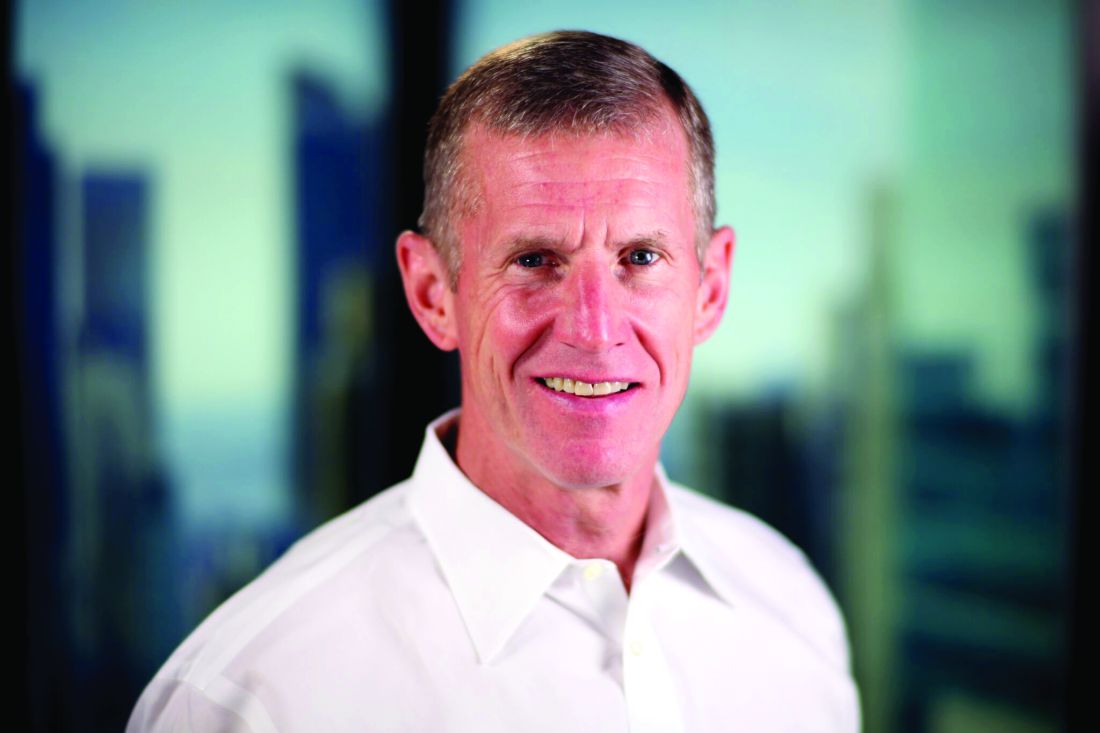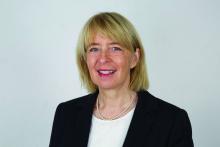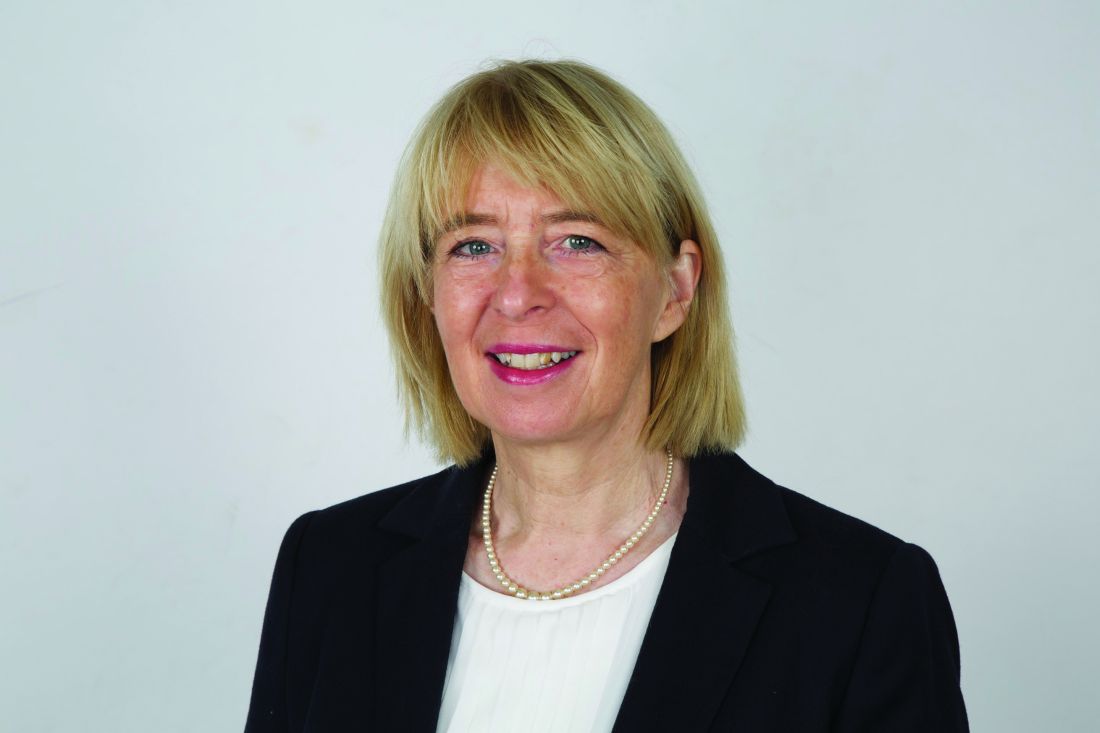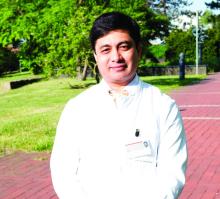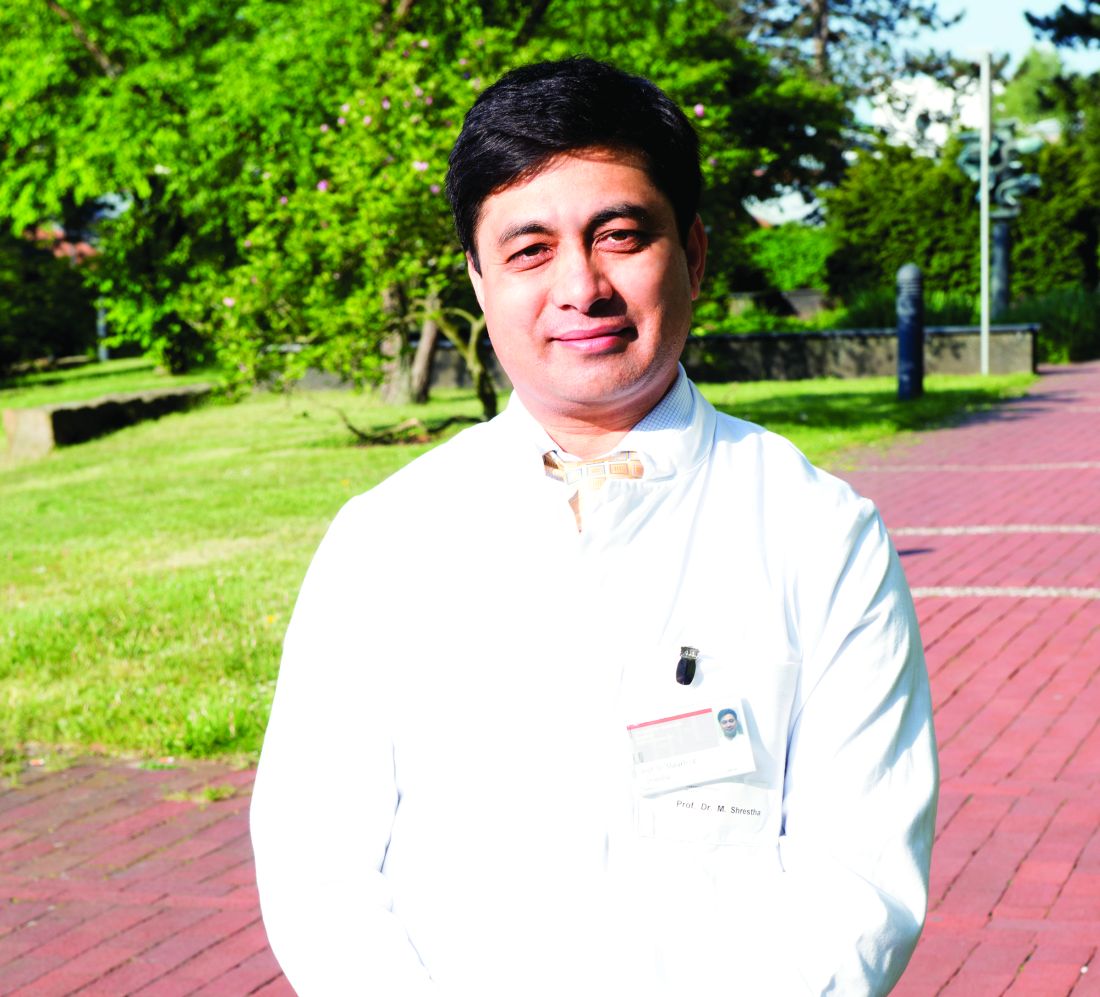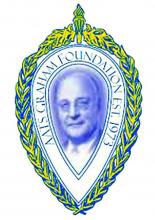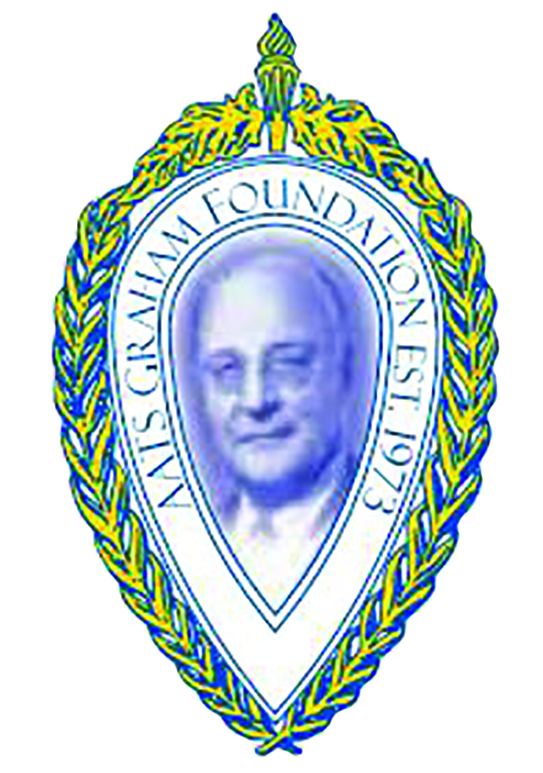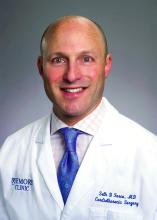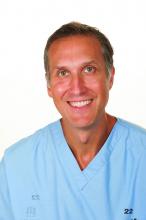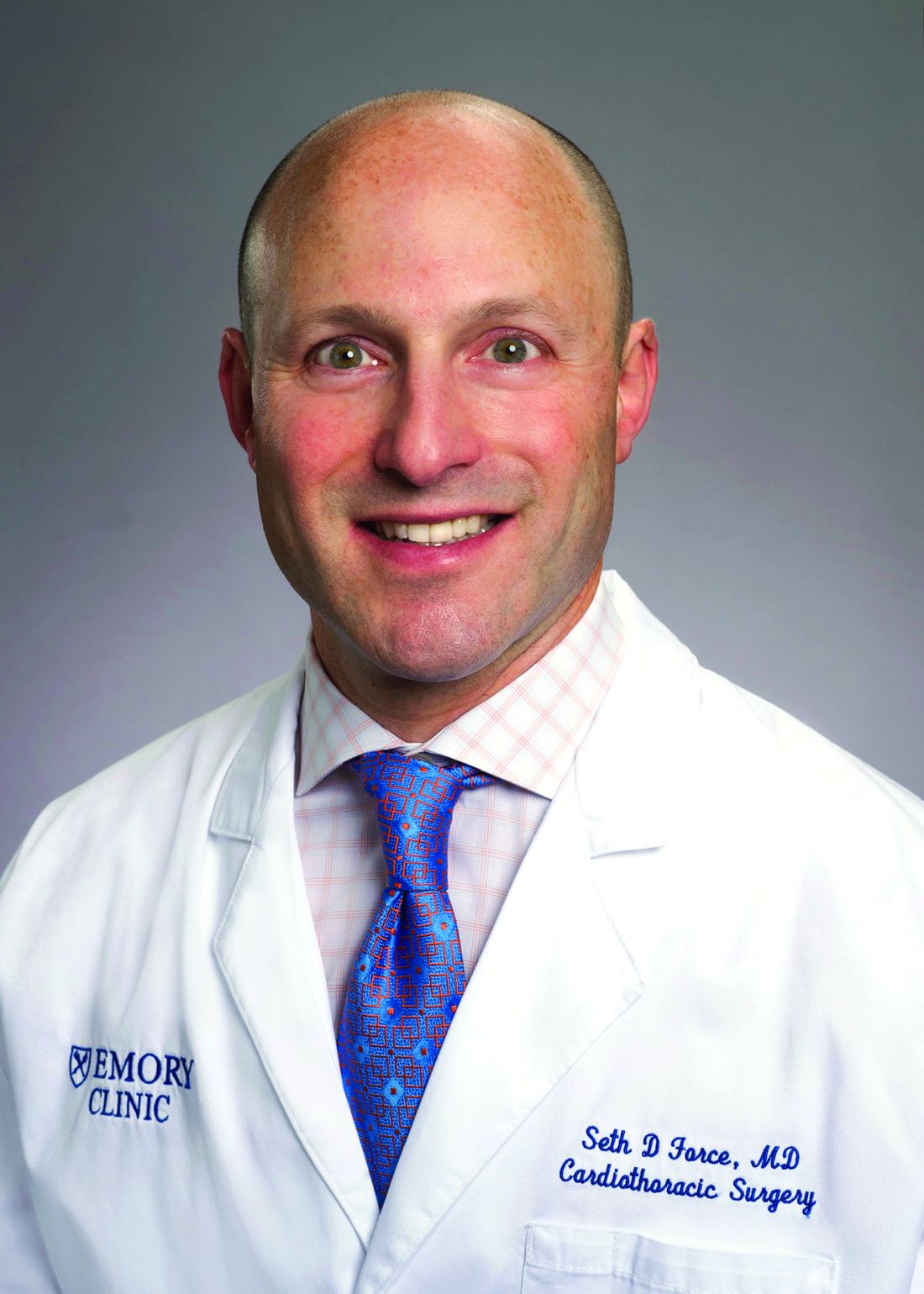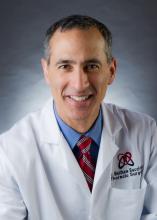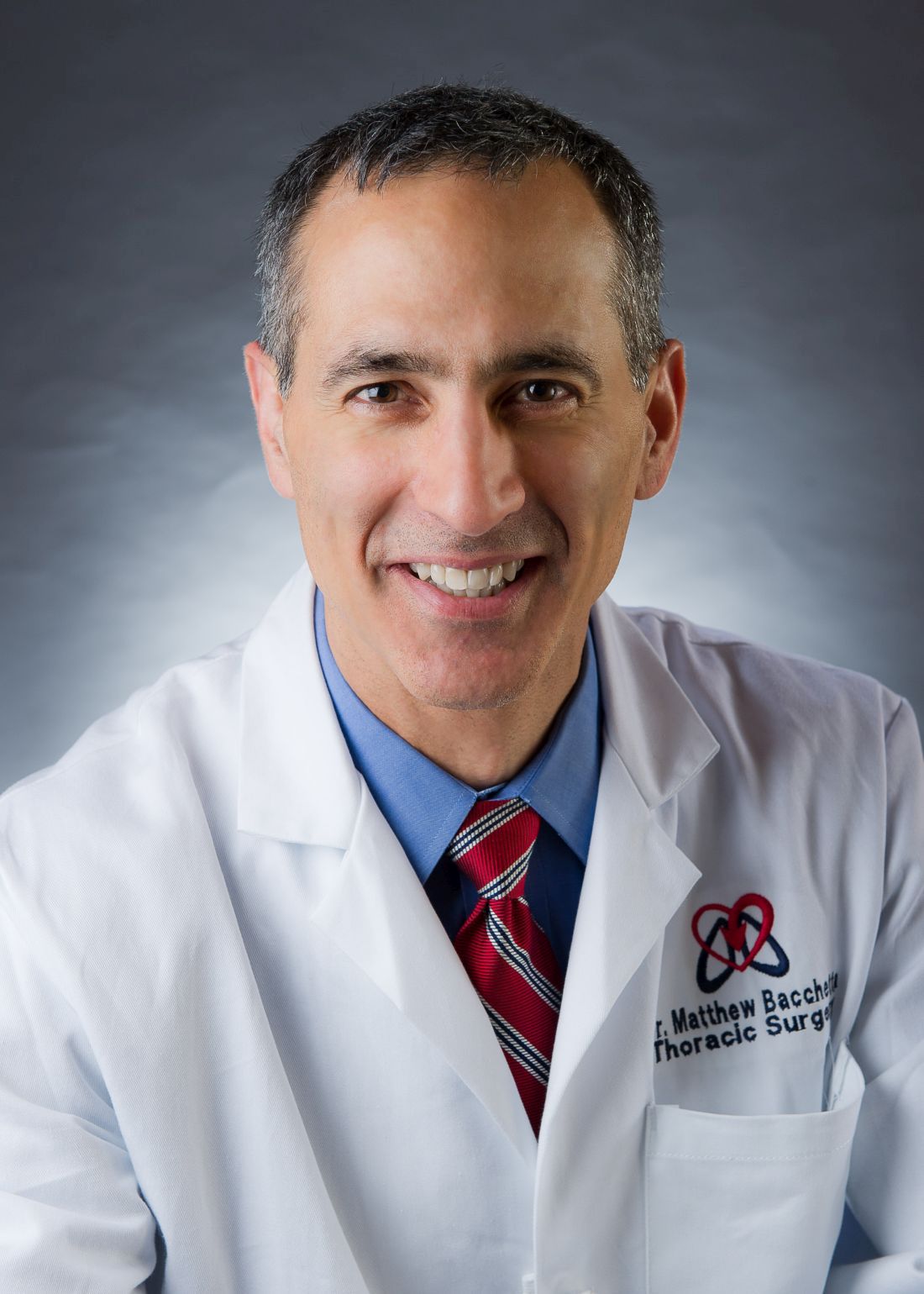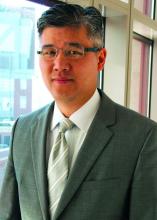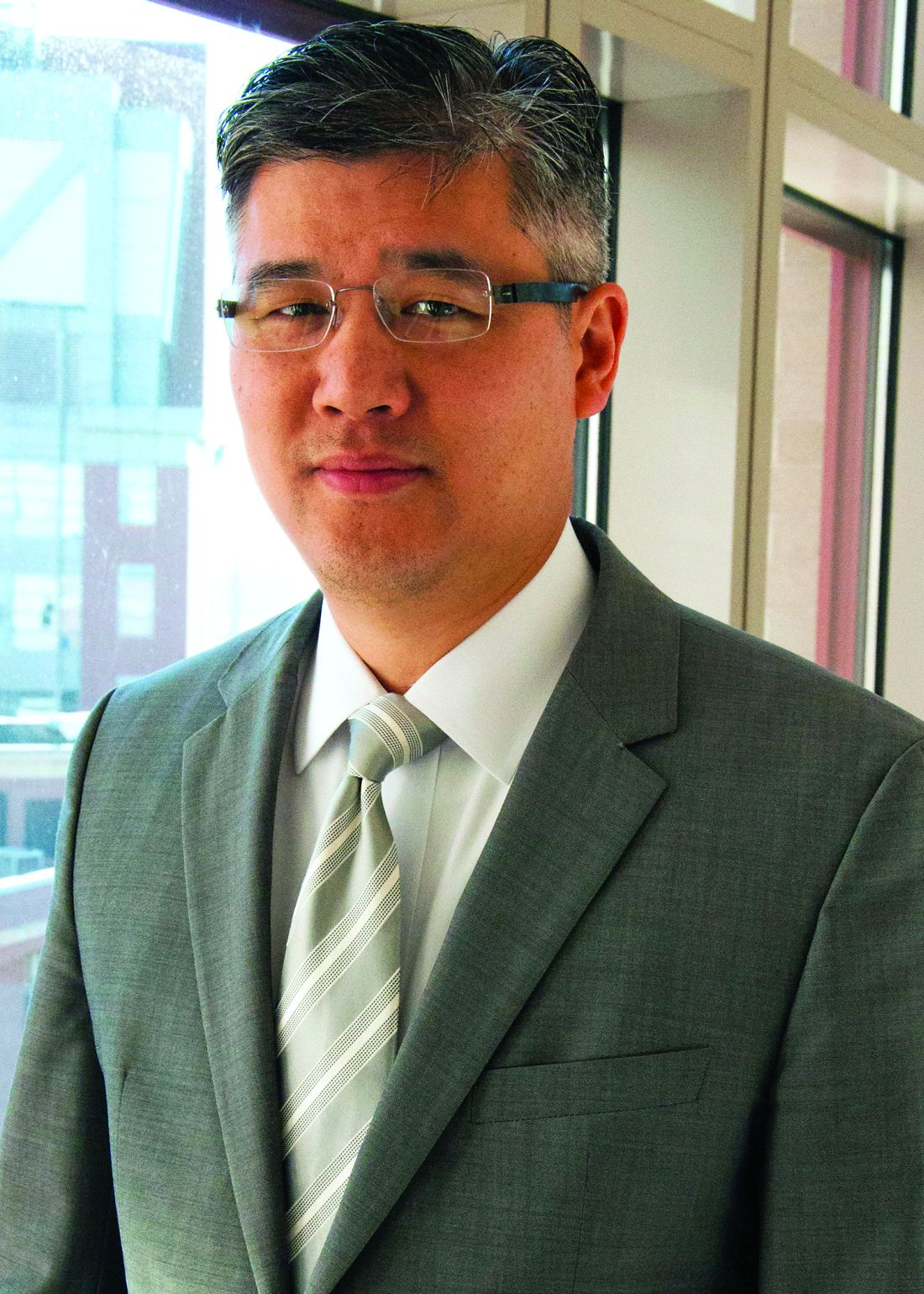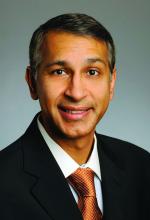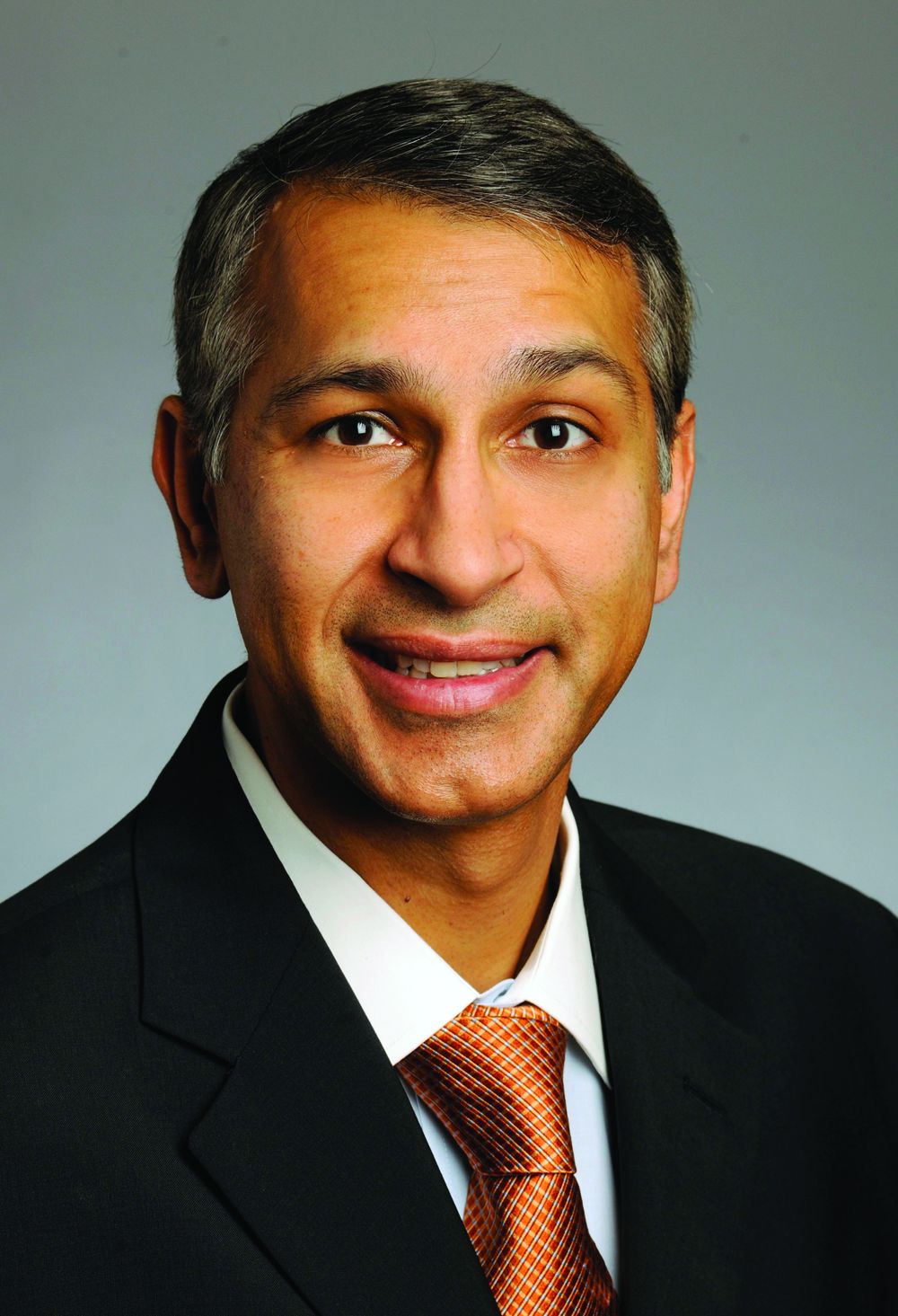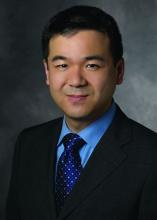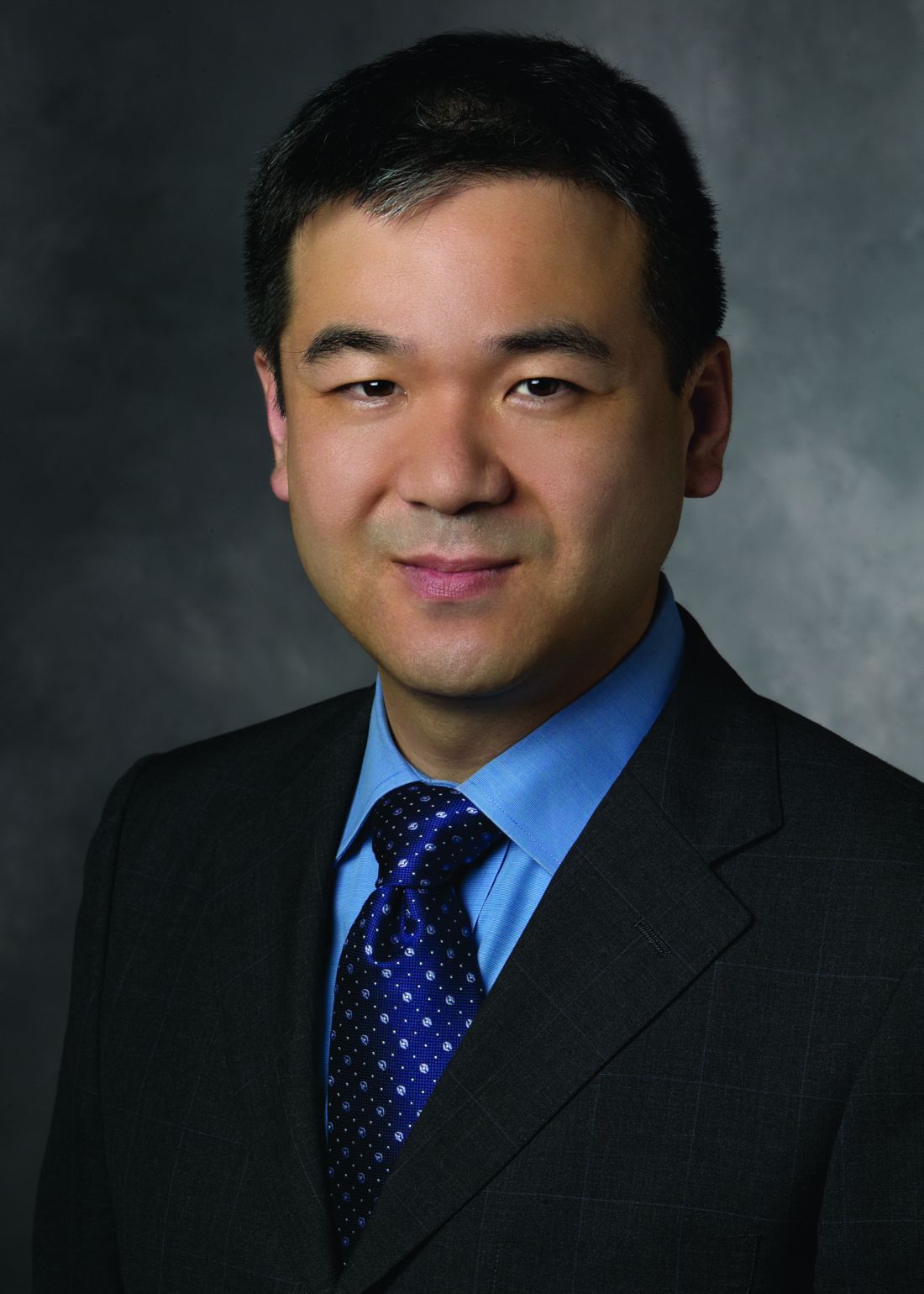User login
Honored Guest Speaker General (Ret.) Stanley A. McChrystal
A transformational leader with a remarkable record of achievement, General Stanley A. McChrystal was called “one of America’s greatest warriors” by Secretary of Defense Robert Gates. A retired four-star general, he is the former commander of U.S. and International Security Assistance Forces (ISAF) Afghanistan and the former commander of the premier military counter-terrorism force, Joint Special Operations Command (JSOC). He is best known for developing and implementing the current counter-insurgency strategy in Afghanistan, and for creating a comprehensive counter-terrorism organization that revolutionized the interagency operating culture.
The son of Major General McChrystal, General Stanley McChrystal graduated from West Point in 1976 and joined the infantry. He began his military career as a platoon commander in the 82nd Airborne Division at Fort Bragg, North Carolina. Over the course of his career, he held several leadership and staff positions in the Army Special Forces, Army Rangers, 82nd Airborne Division and the XVIII Army Airborne Corp and the Joint Staff. He is a graduate of the US Naval War College and he completed fellowships at Harvard’s John F. Kennedy School of Government in 1997 and at the Council on Foreign Relations in 2000.
After 9/11 until his retirement in 2010, General McChrystal spent more than 7 years deployed to combat in a variety of leadership positions. In 2002, he was the chief of staff for military operations in Afghanistan. A year later he was selected to deliver nationally televised Pentagon briefings about military operations in Iraq. From 2003 to 2008, McChrystal commanded JSOC where he led the US Military’s counter-terrorism efforts all over the world. From the summer of 2008 until June of 2009, General McChrystal was the Director of the Joint Staff. In June of 2009, the President of the United States and the Secretary General of NATO appointed General McChrystal to be the Commander of US Forces Afghanistan and NATO ISAF. His command included more than 150,000 troops from 45 allied countries. On August 1 of 2010 General McChrystal retired from the US Army.
General McChrystal is a senior fellow at Yale University’s Jackson Institute for Global Affairs where he teaches a course on Leadership in Operation. He sits on the board of the Yellow Ribbon Fund, Navistar International Corporation and JetBlue Airways. He is also the chair of Service Year Alliance, a project of Be The Change and the Aspen Institute, which envisions a future in which a service year is a cultural expectation and common opportunity for every young American.
General McChrystal co-founded the McChrystal Group in January of 2011 where he is currently a partner. McChrystal Group’s mission is to deliver innovative leadership solutions to American businesses to help them transform and succeed in challenging and dynamic environments.
General McChrystal resides in Alexandria, Virginia with his wife of 39 years, Annie.
Monday, May 1
Team of Teams – Rules of Engagement for a Complex World
9:45 a.m. - 10:25 a.m.
A transformational leader with a remarkable record of achievement, General Stanley A. McChrystal was called “one of America’s greatest warriors” by Secretary of Defense Robert Gates. A retired four-star general, he is the former commander of U.S. and International Security Assistance Forces (ISAF) Afghanistan and the former commander of the premier military counter-terrorism force, Joint Special Operations Command (JSOC). He is best known for developing and implementing the current counter-insurgency strategy in Afghanistan, and for creating a comprehensive counter-terrorism organization that revolutionized the interagency operating culture.
The son of Major General McChrystal, General Stanley McChrystal graduated from West Point in 1976 and joined the infantry. He began his military career as a platoon commander in the 82nd Airborne Division at Fort Bragg, North Carolina. Over the course of his career, he held several leadership and staff positions in the Army Special Forces, Army Rangers, 82nd Airborne Division and the XVIII Army Airborne Corp and the Joint Staff. He is a graduate of the US Naval War College and he completed fellowships at Harvard’s John F. Kennedy School of Government in 1997 and at the Council on Foreign Relations in 2000.
After 9/11 until his retirement in 2010, General McChrystal spent more than 7 years deployed to combat in a variety of leadership positions. In 2002, he was the chief of staff for military operations in Afghanistan. A year later he was selected to deliver nationally televised Pentagon briefings about military operations in Iraq. From 2003 to 2008, McChrystal commanded JSOC where he led the US Military’s counter-terrorism efforts all over the world. From the summer of 2008 until June of 2009, General McChrystal was the Director of the Joint Staff. In June of 2009, the President of the United States and the Secretary General of NATO appointed General McChrystal to be the Commander of US Forces Afghanistan and NATO ISAF. His command included more than 150,000 troops from 45 allied countries. On August 1 of 2010 General McChrystal retired from the US Army.
General McChrystal is a senior fellow at Yale University’s Jackson Institute for Global Affairs where he teaches a course on Leadership in Operation. He sits on the board of the Yellow Ribbon Fund, Navistar International Corporation and JetBlue Airways. He is also the chair of Service Year Alliance, a project of Be The Change and the Aspen Institute, which envisions a future in which a service year is a cultural expectation and common opportunity for every young American.
General McChrystal co-founded the McChrystal Group in January of 2011 where he is currently a partner. McChrystal Group’s mission is to deliver innovative leadership solutions to American businesses to help them transform and succeed in challenging and dynamic environments.
General McChrystal resides in Alexandria, Virginia with his wife of 39 years, Annie.
Monday, May 1
Team of Teams – Rules of Engagement for a Complex World
9:45 a.m. - 10:25 a.m.
A transformational leader with a remarkable record of achievement, General Stanley A. McChrystal was called “one of America’s greatest warriors” by Secretary of Defense Robert Gates. A retired four-star general, he is the former commander of U.S. and International Security Assistance Forces (ISAF) Afghanistan and the former commander of the premier military counter-terrorism force, Joint Special Operations Command (JSOC). He is best known for developing and implementing the current counter-insurgency strategy in Afghanistan, and for creating a comprehensive counter-terrorism organization that revolutionized the interagency operating culture.
The son of Major General McChrystal, General Stanley McChrystal graduated from West Point in 1976 and joined the infantry. He began his military career as a platoon commander in the 82nd Airborne Division at Fort Bragg, North Carolina. Over the course of his career, he held several leadership and staff positions in the Army Special Forces, Army Rangers, 82nd Airborne Division and the XVIII Army Airborne Corp and the Joint Staff. He is a graduate of the US Naval War College and he completed fellowships at Harvard’s John F. Kennedy School of Government in 1997 and at the Council on Foreign Relations in 2000.
After 9/11 until his retirement in 2010, General McChrystal spent more than 7 years deployed to combat in a variety of leadership positions. In 2002, he was the chief of staff for military operations in Afghanistan. A year later he was selected to deliver nationally televised Pentagon briefings about military operations in Iraq. From 2003 to 2008, McChrystal commanded JSOC where he led the US Military’s counter-terrorism efforts all over the world. From the summer of 2008 until June of 2009, General McChrystal was the Director of the Joint Staff. In June of 2009, the President of the United States and the Secretary General of NATO appointed General McChrystal to be the Commander of US Forces Afghanistan and NATO ISAF. His command included more than 150,000 troops from 45 allied countries. On August 1 of 2010 General McChrystal retired from the US Army.
General McChrystal is a senior fellow at Yale University’s Jackson Institute for Global Affairs where he teaches a course on Leadership in Operation. He sits on the board of the Yellow Ribbon Fund, Navistar International Corporation and JetBlue Airways. He is also the chair of Service Year Alliance, a project of Be The Change and the Aspen Institute, which envisions a future in which a service year is a cultural expectation and common opportunity for every young American.
General McChrystal co-founded the McChrystal Group in January of 2011 where he is currently a partner. McChrystal Group’s mission is to deliver innovative leadership solutions to American businesses to help them transform and succeed in challenging and dynamic environments.
General McChrystal resides in Alexandria, Virginia with his wife of 39 years, Annie.
Monday, May 1
Team of Teams – Rules of Engagement for a Complex World
9:45 a.m. - 10:25 a.m.
Basic Science Lecture
Rhona Flin, PhD, FBPsS, FRSE, FRAeS, FRCSEd, is Professor of Industrial Psychology, Aberdeen Business School, Robert Gordon University and Emeritus Professor of Applied Psychology, University of Aberdeen, Scotland. She carries out research and consultancy on human performance in high risk industries, looking at leadership, culture, team skills and decision making in healthcare, aviation and the energy sectors.
Dr. Flin will be speaking on Tuesday, at 10:30 a.m.
Rhona Flin, PhD, FBPsS, FRSE, FRAeS, FRCSEd, is Professor of Industrial Psychology, Aberdeen Business School, Robert Gordon University and Emeritus Professor of Applied Psychology, University of Aberdeen, Scotland. She carries out research and consultancy on human performance in high risk industries, looking at leadership, culture, team skills and decision making in healthcare, aviation and the energy sectors.
Dr. Flin will be speaking on Tuesday, at 10:30 a.m.
Rhona Flin, PhD, FBPsS, FRSE, FRAeS, FRCSEd, is Professor of Industrial Psychology, Aberdeen Business School, Robert Gordon University and Emeritus Professor of Applied Psychology, University of Aberdeen, Scotland. She carries out research and consultancy on human performance in high risk industries, looking at leadership, culture, team skills and decision making in healthcare, aviation and the energy sectors.
Dr. Flin will be speaking on Tuesday, at 10:30 a.m.
Work-life balance to be focus of AATS session
The challenge of finding a satisfying balance between work life and personal life is topic that interests many medical professional, thoracic surgeons in particular. A Sunday AATS CT Theater event will be focus on these issues.
“Ideally, the session would be called ‘Work-Life Balance,’” explained, of the Hannover Medical School in Hannover, Germany.
“At this session, we want to hear from young people,” said Dr. Shrestha. “In the past, we’ve heard from more senior members, who often don’t see this as such a big issue [but] at this session we will hear exclusively from younger members.”
Discussions will center on how the field of cardiothoracic surgery can attract the best and brightest young minds coming out of medical schools around the world. One talk will be given by a resident based in the United States; married to a general surgeon and a new mother of twins, the resident will talk about the importance of allowing surgeons enough leeway in their workloads to tend to domestic matters. Such an approach makes for happier surgeons and, ultimately, better care for patients. Another resident from Germany will shed light on the work-life balance approaches of European surgeons, and both the similarities and differences between the U.S. and Europe in this regard.
In addition, “there will be a panel of senior members, [consisting of] the president and general secretary of the AATS, and the president and general secretary of the European Association,” said Dr. Shrestha. “They can not only comment, but they should also give their views as to how they think we can change our system.”
Dr. Shrestha hopes these discussion will offer young surgeons the advice they need to better their own self-care and their lives. Dr. Shrestha also added that the session will address the growing issue of burnout among surgical residents, with conversations about the best way to move forward in addressing that issue. Working hours have dropped from what they were in previous decades, with surgeons often working as much as 100 hours a week and barely spending time at home. That kind of schedule is no longer the expectation, but surgeons still have to struggle to maintain a home life, self-care, and rest in the context of their daily work. Dr. Shrestha hopes that this session will be an important step in making those goals a reality for future generations of cardiothoracic surgeons.
“We need to attract the best possible talent in this field, regardless of where they’re from or if they’re men or women,” said Dr. Shrestha. “Improving work-life balance is one of the best ways to do that.”
The challenge of finding a satisfying balance between work life and personal life is topic that interests many medical professional, thoracic surgeons in particular. A Sunday AATS CT Theater event will be focus on these issues.
“Ideally, the session would be called ‘Work-Life Balance,’” explained, of the Hannover Medical School in Hannover, Germany.
“At this session, we want to hear from young people,” said Dr. Shrestha. “In the past, we’ve heard from more senior members, who often don’t see this as such a big issue [but] at this session we will hear exclusively from younger members.”
Discussions will center on how the field of cardiothoracic surgery can attract the best and brightest young minds coming out of medical schools around the world. One talk will be given by a resident based in the United States; married to a general surgeon and a new mother of twins, the resident will talk about the importance of allowing surgeons enough leeway in their workloads to tend to domestic matters. Such an approach makes for happier surgeons and, ultimately, better care for patients. Another resident from Germany will shed light on the work-life balance approaches of European surgeons, and both the similarities and differences between the U.S. and Europe in this regard.
In addition, “there will be a panel of senior members, [consisting of] the president and general secretary of the AATS, and the president and general secretary of the European Association,” said Dr. Shrestha. “They can not only comment, but they should also give their views as to how they think we can change our system.”
Dr. Shrestha hopes these discussion will offer young surgeons the advice they need to better their own self-care and their lives. Dr. Shrestha also added that the session will address the growing issue of burnout among surgical residents, with conversations about the best way to move forward in addressing that issue. Working hours have dropped from what they were in previous decades, with surgeons often working as much as 100 hours a week and barely spending time at home. That kind of schedule is no longer the expectation, but surgeons still have to struggle to maintain a home life, self-care, and rest in the context of their daily work. Dr. Shrestha hopes that this session will be an important step in making those goals a reality for future generations of cardiothoracic surgeons.
“We need to attract the best possible talent in this field, regardless of where they’re from or if they’re men or women,” said Dr. Shrestha. “Improving work-life balance is one of the best ways to do that.”
The challenge of finding a satisfying balance between work life and personal life is topic that interests many medical professional, thoracic surgeons in particular. A Sunday AATS CT Theater event will be focus on these issues.
“Ideally, the session would be called ‘Work-Life Balance,’” explained, of the Hannover Medical School in Hannover, Germany.
“At this session, we want to hear from young people,” said Dr. Shrestha. “In the past, we’ve heard from more senior members, who often don’t see this as such a big issue [but] at this session we will hear exclusively from younger members.”
Discussions will center on how the field of cardiothoracic surgery can attract the best and brightest young minds coming out of medical schools around the world. One talk will be given by a resident based in the United States; married to a general surgeon and a new mother of twins, the resident will talk about the importance of allowing surgeons enough leeway in their workloads to tend to domestic matters. Such an approach makes for happier surgeons and, ultimately, better care for patients. Another resident from Germany will shed light on the work-life balance approaches of European surgeons, and both the similarities and differences between the U.S. and Europe in this regard.
In addition, “there will be a panel of senior members, [consisting of] the president and general secretary of the AATS, and the president and general secretary of the European Association,” said Dr. Shrestha. “They can not only comment, but they should also give their views as to how they think we can change our system.”
Dr. Shrestha hopes these discussion will offer young surgeons the advice they need to better their own self-care and their lives. Dr. Shrestha also added that the session will address the growing issue of burnout among surgical residents, with conversations about the best way to move forward in addressing that issue. Working hours have dropped from what they were in previous decades, with surgeons often working as much as 100 hours a week and barely spending time at home. That kind of schedule is no longer the expectation, but surgeons still have to struggle to maintain a home life, self-care, and rest in the context of their daily work. Dr. Shrestha hopes that this session will be an important step in making those goals a reality for future generations of cardiothoracic surgeons.
“We need to attract the best possible talent in this field, regardless of where they’re from or if they’re men or women,” said Dr. Shrestha. “Improving work-life balance is one of the best ways to do that.”
The Graham Foundation Honoring Our Mentors
Today, the American Association for Thoracic Surgery continues to promote scholarship, innovation and leadership in thoracic and cardiovascular surgery so that 100 years from now, breakthroughs that seem unimaginable can be routine.
The AATS Centennial celebrates the first 100 years of exchanging ideas, collaboration and building on each other’s work for growth of the specialty. Those in the early parts of their careers may find this aspect of the meeting most valuable as the opportunity to interact with experts and experienced surgeons can be instrumental to the growth of a young surgeon.
These awards are named for surgeons with long resumes of impressive accomplishments who also share the distinction of making an impact on cardiothoracic surgery by teaching and mentoring young surgeons. Each mentor has made significant contributions to their specialties and has held leadership positions in the field, including several who have served as AATS Presidents.
The Fellowships give those who benefitted from working with these surgeons a way to pay tribute to their mentors, ensuring that their legacy of guidance and education is celebrated along with their achievements into the next generation. Established in 2013, there are currently eight Honoring Our Mentors Fellowships:
The inaugural program, the F. Griffith Pearson Fellowship, provides an educational experience for General Thoracic surgeons who have recently completed their residency or fellowship to spend a focused period of four to six weeks studying clinical techniques at a host institution in North America.
That was followed by the Marc R. de Leval Fellowship which is one of the few funding opportunities available that enables North American surgeons to receive specified training in congenital heart surgery at international centers. In 2016, the Lawrence H. Cohn Fellowship began providing young cardiac surgeons from around the world an advanced experience in valvular surgery or care, and the Denton Cooley Fellowship began to give North American cardiothoracic surgeons who are in their final year of their residency or have recently completed their residency the opportunity to spend four weeks enriching his/her education at the Texas Heart Institute (THI) and Baylor St. Luke’s Medical Center.
President of the AATS Graham Foundation Board of Directors, Dr. David J. Sugarbaker says, “The AATS Graham Foundation Honoring Our Mentors Program is a magnificent way for those who have been given the gift of strong mentorship in their career to say thank you to their mentor. By contributing to the HOM award they establish their mentor as among the greatest mentors in the history of cardiothoracic surgery. The fellowships established in the name of the mentor will allow his or her impact to go on for generations to come. Those who donate to the award are enriching our specialty and saying thank you to their most prized teacher of surgery in their career.”
This year, there are four new Honoring Our Mentors Fellowships in the works. The Foundation will be honoring Jack A. Roth, an individual who has made prodigious clinical research contributions to improve multidisciplinary therapy for lung cancer, with the Jack A. Roth Fellowship in Thoracic Surgical Oncology. The Honoring Our Cleveland Clinic Mentors Program will honor the leadership of Drs. Floyd D. Loop, Delos M. Cosgrove and Bruce W. Lytle and will support a 1.5 day leadership course at the Cleveland Clinic for the top residents in North America and offer the chance to observe surgery. Two additional mentors soon to be recognized with programs in their names are Dr. Timothy J. Gardner, a nationally noted heart surgeon and leader in cardiovascular medicine who is not only seen as a great teacher to residents and fellows, but has been very helpful to young staff surgeons in giving advice and guidance, along with Dr. Aldo R. Castaneda whose spirit and drive have been infused throughout the field of congenital heart surgery. These new programs offer us the opportunity to say thank you to the greatest mentors in the specialty. As President of the AATS Graham Foundation, a mentee of Dr. Lawrence H. Cohn and donor to the Honoring Our Mentor Programs, Dr. David Sugarbaker understands the affect that Honoring Our Mentors Fellowships have on both those that give these awards and those that receive them. “We are indebted to those mentees who have contributed to these programs, publicly acknowledging their gratitude to the mentor who shaped their cardiothoracic surgery career.”
These programs would not be possible without the stewardship of leaders in cardiothoracic surgery and the generous support of our donors. To learn more about how you can honor these mentors and support the fellowships, visit the AATS Graham Foundation website at www.aatsgrahamfoundation.org or stop by the AATS Welcome Center in the Exhibit Hall.
Today, the American Association for Thoracic Surgery continues to promote scholarship, innovation and leadership in thoracic and cardiovascular surgery so that 100 years from now, breakthroughs that seem unimaginable can be routine.
The AATS Centennial celebrates the first 100 years of exchanging ideas, collaboration and building on each other’s work for growth of the specialty. Those in the early parts of their careers may find this aspect of the meeting most valuable as the opportunity to interact with experts and experienced surgeons can be instrumental to the growth of a young surgeon.
These awards are named for surgeons with long resumes of impressive accomplishments who also share the distinction of making an impact on cardiothoracic surgery by teaching and mentoring young surgeons. Each mentor has made significant contributions to their specialties and has held leadership positions in the field, including several who have served as AATS Presidents.
The Fellowships give those who benefitted from working with these surgeons a way to pay tribute to their mentors, ensuring that their legacy of guidance and education is celebrated along with their achievements into the next generation. Established in 2013, there are currently eight Honoring Our Mentors Fellowships:
The inaugural program, the F. Griffith Pearson Fellowship, provides an educational experience for General Thoracic surgeons who have recently completed their residency or fellowship to spend a focused period of four to six weeks studying clinical techniques at a host institution in North America.
That was followed by the Marc R. de Leval Fellowship which is one of the few funding opportunities available that enables North American surgeons to receive specified training in congenital heart surgery at international centers. In 2016, the Lawrence H. Cohn Fellowship began providing young cardiac surgeons from around the world an advanced experience in valvular surgery or care, and the Denton Cooley Fellowship began to give North American cardiothoracic surgeons who are in their final year of their residency or have recently completed their residency the opportunity to spend four weeks enriching his/her education at the Texas Heart Institute (THI) and Baylor St. Luke’s Medical Center.
President of the AATS Graham Foundation Board of Directors, Dr. David J. Sugarbaker says, “The AATS Graham Foundation Honoring Our Mentors Program is a magnificent way for those who have been given the gift of strong mentorship in their career to say thank you to their mentor. By contributing to the HOM award they establish their mentor as among the greatest mentors in the history of cardiothoracic surgery. The fellowships established in the name of the mentor will allow his or her impact to go on for generations to come. Those who donate to the award are enriching our specialty and saying thank you to their most prized teacher of surgery in their career.”
This year, there are four new Honoring Our Mentors Fellowships in the works. The Foundation will be honoring Jack A. Roth, an individual who has made prodigious clinical research contributions to improve multidisciplinary therapy for lung cancer, with the Jack A. Roth Fellowship in Thoracic Surgical Oncology. The Honoring Our Cleveland Clinic Mentors Program will honor the leadership of Drs. Floyd D. Loop, Delos M. Cosgrove and Bruce W. Lytle and will support a 1.5 day leadership course at the Cleveland Clinic for the top residents in North America and offer the chance to observe surgery. Two additional mentors soon to be recognized with programs in their names are Dr. Timothy J. Gardner, a nationally noted heart surgeon and leader in cardiovascular medicine who is not only seen as a great teacher to residents and fellows, but has been very helpful to young staff surgeons in giving advice and guidance, along with Dr. Aldo R. Castaneda whose spirit and drive have been infused throughout the field of congenital heart surgery. These new programs offer us the opportunity to say thank you to the greatest mentors in the specialty. As President of the AATS Graham Foundation, a mentee of Dr. Lawrence H. Cohn and donor to the Honoring Our Mentor Programs, Dr. David Sugarbaker understands the affect that Honoring Our Mentors Fellowships have on both those that give these awards and those that receive them. “We are indebted to those mentees who have contributed to these programs, publicly acknowledging their gratitude to the mentor who shaped their cardiothoracic surgery career.”
These programs would not be possible without the stewardship of leaders in cardiothoracic surgery and the generous support of our donors. To learn more about how you can honor these mentors and support the fellowships, visit the AATS Graham Foundation website at www.aatsgrahamfoundation.org or stop by the AATS Welcome Center in the Exhibit Hall.
Today, the American Association for Thoracic Surgery continues to promote scholarship, innovation and leadership in thoracic and cardiovascular surgery so that 100 years from now, breakthroughs that seem unimaginable can be routine.
The AATS Centennial celebrates the first 100 years of exchanging ideas, collaboration and building on each other’s work for growth of the specialty. Those in the early parts of their careers may find this aspect of the meeting most valuable as the opportunity to interact with experts and experienced surgeons can be instrumental to the growth of a young surgeon.
These awards are named for surgeons with long resumes of impressive accomplishments who also share the distinction of making an impact on cardiothoracic surgery by teaching and mentoring young surgeons. Each mentor has made significant contributions to their specialties and has held leadership positions in the field, including several who have served as AATS Presidents.
The Fellowships give those who benefitted from working with these surgeons a way to pay tribute to their mentors, ensuring that their legacy of guidance and education is celebrated along with their achievements into the next generation. Established in 2013, there are currently eight Honoring Our Mentors Fellowships:
The inaugural program, the F. Griffith Pearson Fellowship, provides an educational experience for General Thoracic surgeons who have recently completed their residency or fellowship to spend a focused period of four to six weeks studying clinical techniques at a host institution in North America.
That was followed by the Marc R. de Leval Fellowship which is one of the few funding opportunities available that enables North American surgeons to receive specified training in congenital heart surgery at international centers. In 2016, the Lawrence H. Cohn Fellowship began providing young cardiac surgeons from around the world an advanced experience in valvular surgery or care, and the Denton Cooley Fellowship began to give North American cardiothoracic surgeons who are in their final year of their residency or have recently completed their residency the opportunity to spend four weeks enriching his/her education at the Texas Heart Institute (THI) and Baylor St. Luke’s Medical Center.
President of the AATS Graham Foundation Board of Directors, Dr. David J. Sugarbaker says, “The AATS Graham Foundation Honoring Our Mentors Program is a magnificent way for those who have been given the gift of strong mentorship in their career to say thank you to their mentor. By contributing to the HOM award they establish their mentor as among the greatest mentors in the history of cardiothoracic surgery. The fellowships established in the name of the mentor will allow his or her impact to go on for generations to come. Those who donate to the award are enriching our specialty and saying thank you to their most prized teacher of surgery in their career.”
This year, there are four new Honoring Our Mentors Fellowships in the works. The Foundation will be honoring Jack A. Roth, an individual who has made prodigious clinical research contributions to improve multidisciplinary therapy for lung cancer, with the Jack A. Roth Fellowship in Thoracic Surgical Oncology. The Honoring Our Cleveland Clinic Mentors Program will honor the leadership of Drs. Floyd D. Loop, Delos M. Cosgrove and Bruce W. Lytle and will support a 1.5 day leadership course at the Cleveland Clinic for the top residents in North America and offer the chance to observe surgery. Two additional mentors soon to be recognized with programs in their names are Dr. Timothy J. Gardner, a nationally noted heart surgeon and leader in cardiovascular medicine who is not only seen as a great teacher to residents and fellows, but has been very helpful to young staff surgeons in giving advice and guidance, along with Dr. Aldo R. Castaneda whose spirit and drive have been infused throughout the field of congenital heart surgery. These new programs offer us the opportunity to say thank you to the greatest mentors in the specialty. As President of the AATS Graham Foundation, a mentee of Dr. Lawrence H. Cohn and donor to the Honoring Our Mentor Programs, Dr. David Sugarbaker understands the affect that Honoring Our Mentors Fellowships have on both those that give these awards and those that receive them. “We are indebted to those mentees who have contributed to these programs, publicly acknowledging their gratitude to the mentor who shaped their cardiothoracic surgery career.”
These programs would not be possible without the stewardship of leaders in cardiothoracic surgery and the generous support of our donors. To learn more about how you can honor these mentors and support the fellowships, visit the AATS Graham Foundation website at www.aatsgrahamfoundation.org or stop by the AATS Welcome Center in the Exhibit Hall.
Catch up on the state of the art in Thoracic Surgery
The most up-to-date surgical management for lung cancer, the mediastinum and pleura, and the esophagus, will be featured in Sunday’s full-day symposium “Thoracic Surgery 2017 – State of the Art.”
“We will cover not only standard practice and a lot of the major clinical issues that come up in general thoracic surgery but also discuss new developments and directions for thoracic diseases,” said Seth D. Force, MD, of Emory University, course co-chair. “It’s hard for everyone to stay up to date on everything, especially with a lot of the modern techniques and changes in treatment plans. Things are changing pretty quickly. Presentations by the leading experts in our field will help bring participants up to speed on the latest treatments for different thoracic diseases.”
The symposium will kick off with a presentation by Betty Tong, MD, of Duke University, on setting up a lung cancer screening program. “[Screening] has really become an important concept in the outpatient thoracic practice,” Dr. Force said. Other presenters giving talks in this section on solitary pulmonary nodule and screening will discuss who gets followed in lung cancer screening programs, management of screen-detected lesions, and diagnostic modality options for suspicious lesions. “There’s a lot of buzz around lung cancer screening as well as what to do with small nodules that are found in these screening programs – how to deal with them, what they mean and what’s the best surgical approach,” Dr. Liberman said.
The next section of the course, on controversial and high-risk patients with lung cancer, will feature presentations on how to define physiological high risk; evidence-supported use of sublobar resection, MITS and brachytherapy; state of the science for SBRT versus resection in clinical stage 1, and a pro-con debate on when surgery is indicated for patients with N2 disease.
The program will conclude with a series of talks on the esophagus, including exploring the limits of esophageal-sparing therapy for high-grade dysplasia and T1a adenocarcinoma; who is and is not a candidate for trimodality therapy in stage III cancer; minimally invasive esophagectomt, thoracoscopic esophagectomy and Ivor Lewis surgical approaches; and surgery for complex patients with achalasia, followed by a panel discussion.
“We really hope and expect this will be an interactive session with a lot of participant questions, feedback and back and forth discussion,” Dr. Force said. “Attending the session will allow surgeons to either set up or make sure they have a modern thoracic practice. It will help them ensure they’re providing the most up-to-date treatment and diagnostic options for their patients.”
The most up-to-date surgical management for lung cancer, the mediastinum and pleura, and the esophagus, will be featured in Sunday’s full-day symposium “Thoracic Surgery 2017 – State of the Art.”
“We will cover not only standard practice and a lot of the major clinical issues that come up in general thoracic surgery but also discuss new developments and directions for thoracic diseases,” said Seth D. Force, MD, of Emory University, course co-chair. “It’s hard for everyone to stay up to date on everything, especially with a lot of the modern techniques and changes in treatment plans. Things are changing pretty quickly. Presentations by the leading experts in our field will help bring participants up to speed on the latest treatments for different thoracic diseases.”
The symposium will kick off with a presentation by Betty Tong, MD, of Duke University, on setting up a lung cancer screening program. “[Screening] has really become an important concept in the outpatient thoracic practice,” Dr. Force said. Other presenters giving talks in this section on solitary pulmonary nodule and screening will discuss who gets followed in lung cancer screening programs, management of screen-detected lesions, and diagnostic modality options for suspicious lesions. “There’s a lot of buzz around lung cancer screening as well as what to do with small nodules that are found in these screening programs – how to deal with them, what they mean and what’s the best surgical approach,” Dr. Liberman said.
The next section of the course, on controversial and high-risk patients with lung cancer, will feature presentations on how to define physiological high risk; evidence-supported use of sublobar resection, MITS and brachytherapy; state of the science for SBRT versus resection in clinical stage 1, and a pro-con debate on when surgery is indicated for patients with N2 disease.
The program will conclude with a series of talks on the esophagus, including exploring the limits of esophageal-sparing therapy for high-grade dysplasia and T1a adenocarcinoma; who is and is not a candidate for trimodality therapy in stage III cancer; minimally invasive esophagectomt, thoracoscopic esophagectomy and Ivor Lewis surgical approaches; and surgery for complex patients with achalasia, followed by a panel discussion.
“We really hope and expect this will be an interactive session with a lot of participant questions, feedback and back and forth discussion,” Dr. Force said. “Attending the session will allow surgeons to either set up or make sure they have a modern thoracic practice. It will help them ensure they’re providing the most up-to-date treatment and diagnostic options for their patients.”
The most up-to-date surgical management for lung cancer, the mediastinum and pleura, and the esophagus, will be featured in Sunday’s full-day symposium “Thoracic Surgery 2017 – State of the Art.”
“We will cover not only standard practice and a lot of the major clinical issues that come up in general thoracic surgery but also discuss new developments and directions for thoracic diseases,” said Seth D. Force, MD, of Emory University, course co-chair. “It’s hard for everyone to stay up to date on everything, especially with a lot of the modern techniques and changes in treatment plans. Things are changing pretty quickly. Presentations by the leading experts in our field will help bring participants up to speed on the latest treatments for different thoracic diseases.”
The symposium will kick off with a presentation by Betty Tong, MD, of Duke University, on setting up a lung cancer screening program. “[Screening] has really become an important concept in the outpatient thoracic practice,” Dr. Force said. Other presenters giving talks in this section on solitary pulmonary nodule and screening will discuss who gets followed in lung cancer screening programs, management of screen-detected lesions, and diagnostic modality options for suspicious lesions. “There’s a lot of buzz around lung cancer screening as well as what to do with small nodules that are found in these screening programs – how to deal with them, what they mean and what’s the best surgical approach,” Dr. Liberman said.
The next section of the course, on controversial and high-risk patients with lung cancer, will feature presentations on how to define physiological high risk; evidence-supported use of sublobar resection, MITS and brachytherapy; state of the science for SBRT versus resection in clinical stage 1, and a pro-con debate on when surgery is indicated for patients with N2 disease.
The program will conclude with a series of talks on the esophagus, including exploring the limits of esophageal-sparing therapy for high-grade dysplasia and T1a adenocarcinoma; who is and is not a candidate for trimodality therapy in stage III cancer; minimally invasive esophagectomt, thoracoscopic esophagectomy and Ivor Lewis surgical approaches; and surgery for complex patients with achalasia, followed by a panel discussion.
“We really hope and expect this will be an interactive session with a lot of participant questions, feedback and back and forth discussion,” Dr. Force said. “Attending the session will allow surgeons to either set up or make sure they have a modern thoracic practice. It will help them ensure they’re providing the most up-to-date treatment and diagnostic options for their patients.”
Stroll Down the AmSECT Avenue
As the premier organization focused on extracorporeal circulation technology professionals, AmSECT encourages sharing of the latest trends and developments in the industry. When visiting the Exhibit Hall, stroll over to AmSECT Avenue and explore perfusion technologies and products – all in one place!
Walk the red carpet and meet with Abbott, Spectrum Medical, Medtronic, LivaNova, Terumo and more! See first-hand the latest in perfusion technology and advancements. You’ll gain knowledge of products that you can immediately take back to your facility, and other advancements that will help you remain current in the field of perfusion.
Stop by the AmSECT booth to discover how to keep learning after the conference concludes! AmSECT University provides a platform to facilitate perfusion-related education and earn continuing education units. The AmSECT team is available to answer your questions about AmSECT University and other benefits you will receive by becoming an AmSECT member.
As the premier organization focused on extracorporeal circulation technology professionals, AmSECT encourages sharing of the latest trends and developments in the industry. When visiting the Exhibit Hall, stroll over to AmSECT Avenue and explore perfusion technologies and products – all in one place!
Walk the red carpet and meet with Abbott, Spectrum Medical, Medtronic, LivaNova, Terumo and more! See first-hand the latest in perfusion technology and advancements. You’ll gain knowledge of products that you can immediately take back to your facility, and other advancements that will help you remain current in the field of perfusion.
Stop by the AmSECT booth to discover how to keep learning after the conference concludes! AmSECT University provides a platform to facilitate perfusion-related education and earn continuing education units. The AmSECT team is available to answer your questions about AmSECT University and other benefits you will receive by becoming an AmSECT member.
As the premier organization focused on extracorporeal circulation technology professionals, AmSECT encourages sharing of the latest trends and developments in the industry. When visiting the Exhibit Hall, stroll over to AmSECT Avenue and explore perfusion technologies and products – all in one place!
Walk the red carpet and meet with Abbott, Spectrum Medical, Medtronic, LivaNova, Terumo and more! See first-hand the latest in perfusion technology and advancements. You’ll gain knowledge of products that you can immediately take back to your facility, and other advancements that will help you remain current in the field of perfusion.
Stop by the AmSECT booth to discover how to keep learning after the conference concludes! AmSECT University provides a platform to facilitate perfusion-related education and earn continuing education units. The AmSECT team is available to answer your questions about AmSECT University and other benefits you will receive by becoming an AmSECT member.
Transplantation and ECMO feature prominently in Saturday session
Saturday’s course “Cardiothoracic Transplant and Mechanical Circulatory Support of Heart and Lung Failure: Mastery of the Management of End Stage Heart and Lung Disease” will explore novel techniques in heart and lung transplant, mechanical circulatory support, and extracorporeal membrane oxygenation (ECMO). The course is co-chaired by Matthew D. Bacchetta, MD, of Columbia University, Carmelo A. Milano, of Duke University, and Rich Walczak, CCP, FPP, also of Duke University.
The first session will focus on heart transplants, and will cover topics such as perfusion storage for transplantation, maintaining an ex-vivo heart, primary graft dysfunction and a talk from Yoshifumi Naka, MD, of Columbia University, who will provide first-hand accounts of using the latest durable centrifugal left ventricular assist device (LVAD).
“We’re going to get a very comprehensive update on the use of donation after cardiac death (DCD) lung transplantation, which is obviously a hot topic in our field right now,” explained Dr. Bacchetta. DCD will also be discussed in relation to heart transplants.
After lunch, mechanical circulatory support will take center stage. Presentations will range from dealing with LVAD and BiVAD support, to avoiding and treating pump thrombosis, and techniques for troubleshooting implantable devices. The course will close with a session on ECMO with Dr. Bacchetta presenting on ECMO bridge to transplantation (BTT), while other talks consider artificial lung development, ECMO transport, management of ambulation during ECMO, and ex vivo lung perfusion.
Dr. Bacchetta said, “We’ll be getting really good reviews from some of the best centers around the world.”
Saturday’s course “Cardiothoracic Transplant and Mechanical Circulatory Support of Heart and Lung Failure: Mastery of the Management of End Stage Heart and Lung Disease” will explore novel techniques in heart and lung transplant, mechanical circulatory support, and extracorporeal membrane oxygenation (ECMO). The course is co-chaired by Matthew D. Bacchetta, MD, of Columbia University, Carmelo A. Milano, of Duke University, and Rich Walczak, CCP, FPP, also of Duke University.
The first session will focus on heart transplants, and will cover topics such as perfusion storage for transplantation, maintaining an ex-vivo heart, primary graft dysfunction and a talk from Yoshifumi Naka, MD, of Columbia University, who will provide first-hand accounts of using the latest durable centrifugal left ventricular assist device (LVAD).
“We’re going to get a very comprehensive update on the use of donation after cardiac death (DCD) lung transplantation, which is obviously a hot topic in our field right now,” explained Dr. Bacchetta. DCD will also be discussed in relation to heart transplants.
After lunch, mechanical circulatory support will take center stage. Presentations will range from dealing with LVAD and BiVAD support, to avoiding and treating pump thrombosis, and techniques for troubleshooting implantable devices. The course will close with a session on ECMO with Dr. Bacchetta presenting on ECMO bridge to transplantation (BTT), while other talks consider artificial lung development, ECMO transport, management of ambulation during ECMO, and ex vivo lung perfusion.
Dr. Bacchetta said, “We’ll be getting really good reviews from some of the best centers around the world.”
Saturday’s course “Cardiothoracic Transplant and Mechanical Circulatory Support of Heart and Lung Failure: Mastery of the Management of End Stage Heart and Lung Disease” will explore novel techniques in heart and lung transplant, mechanical circulatory support, and extracorporeal membrane oxygenation (ECMO). The course is co-chaired by Matthew D. Bacchetta, MD, of Columbia University, Carmelo A. Milano, of Duke University, and Rich Walczak, CCP, FPP, also of Duke University.
The first session will focus on heart transplants, and will cover topics such as perfusion storage for transplantation, maintaining an ex-vivo heart, primary graft dysfunction and a talk from Yoshifumi Naka, MD, of Columbia University, who will provide first-hand accounts of using the latest durable centrifugal left ventricular assist device (LVAD).
“We’re going to get a very comprehensive update on the use of donation after cardiac death (DCD) lung transplantation, which is obviously a hot topic in our field right now,” explained Dr. Bacchetta. DCD will also be discussed in relation to heart transplants.
After lunch, mechanical circulatory support will take center stage. Presentations will range from dealing with LVAD and BiVAD support, to avoiding and treating pump thrombosis, and techniques for troubleshooting implantable devices. The course will close with a session on ECMO with Dr. Bacchetta presenting on ECMO bridge to transplantation (BTT), while other talks consider artificial lung development, ECMO transport, management of ambulation during ECMO, and ex vivo lung perfusion.
Dr. Bacchetta said, “We’ll be getting really good reviews from some of the best centers around the world.”
The 20th Annual C. Walton Lillehei Forum Award
Attendees will have the opportunity to hear about exceptional cardiothoracic research at Monday afternoon’s 20th Annual C. Walton Lillehei Resident Forum, which showcases top research by residents.
Co-chairs Dao Nguyen, MD, of the University of Miami Health System and Frederick Y. Chen, MD, PhD, of Tufts Medical Center, along with members of the AATS Research Scholarship Committee reviewed the submitted manuscripts and will judge the oral presentations to select the winner of a prestigious $5,000 cash prize. The competition is limited to original work presented by residents in cardiothoracic surgery and/or residents in general surgical training programs who are working in a cardiothoracic surgical laboratory or clinical rotation in North America.
“The competition is fierce as all the abstracts were of the highest scientific caliber and the committee had a hard time selecting the final top six to include in the final program,” he said. “It is a great honor for resident trainees to give a podium presentation of their research works at the top international meeting in the field of cardiothoracic surgery, such as the AATS.”
The individual presentations are the work of one to three years in the laboratory and represent the specialties’ best non-clinical research, Dr. Chen added.
“The top prize is the most prestigious prize for any postdoctoral research fellow in thoracic surgery and marks them as someone who will likely become a leader in the field,” he said.
Attendees will get the chance to hear a wide diversity of research on Monday, including two abstracts focused on cardiac surgery research, one of which centers on the genetic basis of aortic aneurysm, and another that focuses on cell therapy to rescue heart function following ischemic injury, Dr. Nguyen said. Four abstracts focus on thoracic surgery research, one of which relates to oncology, one that focuses on tissue engineering, one that pertains to lung transplantation, and one that applies the concept of lung perfusion to rehabilitate borderline lung donor graft to restore lung function affected by sepsis.
“These research projects are at the cutting edge of innovation,” Dr. Nguyen said.
Monday’s forum will kick off with a research paper entitled “Mutations in ROBO4 Lead to the Development of Bicuspid Aortic Valve and Ascending Aortic Aneurysm,” presented by Hamza Aziz, MD, of Duke University.
Next, Jarrod Predina, MD, of the University of Pennsylvania, will present research that describes how “Targeted Near-Infrared Intraoperative Molecular Imaging Can Identify Residual Disease During Pulmonary Resection,” followed by an analysis on how “Delivery of Endothelial Progenitor Cells with Injectable Shear-Thinning Hydrogels Maintains Ventricular Geometry and Normalizes Dynamic Strain to Stabilize Cardiac Function Following Ischemic Injury,” presented by Ann C. Gaffey, MD, also of the University of Pennsylvania.
Attendees will also hear a presentation entitled “Targeted Cell Replacement in Human Lung Bioengineering,” by Brandon A. Guenthart, MD, of Columbia University. Stephen Chiu, MD, of Northwestern University, will then present his research paper called “Donor-derived Non-Classical Monocytes Mediate Primary Lung Allograft Dysfunction by Recruiting Recipient Neutrophils via Toll-Like Receptor-dependent Production of MIP-2 .”
Finally, attendees will hear about how “In Vivo Lung Perfusion Rehabilitates Sepsis-Induced Lung Injury,” presented by J. Hunter Mehaffey, MD, of the University of Virginia.
Dr. Nguyen encourages all meeting attendees to attend the forum to learn about the forefront of cardiothoracic surgery research performed by the future generation of the specialty and to “give the trainees all the support and accolades that they and their lab mentors all deserve.”
Attendees will have the opportunity to hear about exceptional cardiothoracic research at Monday afternoon’s 20th Annual C. Walton Lillehei Resident Forum, which showcases top research by residents.
Co-chairs Dao Nguyen, MD, of the University of Miami Health System and Frederick Y. Chen, MD, PhD, of Tufts Medical Center, along with members of the AATS Research Scholarship Committee reviewed the submitted manuscripts and will judge the oral presentations to select the winner of a prestigious $5,000 cash prize. The competition is limited to original work presented by residents in cardiothoracic surgery and/or residents in general surgical training programs who are working in a cardiothoracic surgical laboratory or clinical rotation in North America.
“The competition is fierce as all the abstracts were of the highest scientific caliber and the committee had a hard time selecting the final top six to include in the final program,” he said. “It is a great honor for resident trainees to give a podium presentation of their research works at the top international meeting in the field of cardiothoracic surgery, such as the AATS.”
The individual presentations are the work of one to three years in the laboratory and represent the specialties’ best non-clinical research, Dr. Chen added.
“The top prize is the most prestigious prize for any postdoctoral research fellow in thoracic surgery and marks them as someone who will likely become a leader in the field,” he said.
Attendees will get the chance to hear a wide diversity of research on Monday, including two abstracts focused on cardiac surgery research, one of which centers on the genetic basis of aortic aneurysm, and another that focuses on cell therapy to rescue heart function following ischemic injury, Dr. Nguyen said. Four abstracts focus on thoracic surgery research, one of which relates to oncology, one that focuses on tissue engineering, one that pertains to lung transplantation, and one that applies the concept of lung perfusion to rehabilitate borderline lung donor graft to restore lung function affected by sepsis.
“These research projects are at the cutting edge of innovation,” Dr. Nguyen said.
Monday’s forum will kick off with a research paper entitled “Mutations in ROBO4 Lead to the Development of Bicuspid Aortic Valve and Ascending Aortic Aneurysm,” presented by Hamza Aziz, MD, of Duke University.
Next, Jarrod Predina, MD, of the University of Pennsylvania, will present research that describes how “Targeted Near-Infrared Intraoperative Molecular Imaging Can Identify Residual Disease During Pulmonary Resection,” followed by an analysis on how “Delivery of Endothelial Progenitor Cells with Injectable Shear-Thinning Hydrogels Maintains Ventricular Geometry and Normalizes Dynamic Strain to Stabilize Cardiac Function Following Ischemic Injury,” presented by Ann C. Gaffey, MD, also of the University of Pennsylvania.
Attendees will also hear a presentation entitled “Targeted Cell Replacement in Human Lung Bioengineering,” by Brandon A. Guenthart, MD, of Columbia University. Stephen Chiu, MD, of Northwestern University, will then present his research paper called “Donor-derived Non-Classical Monocytes Mediate Primary Lung Allograft Dysfunction by Recruiting Recipient Neutrophils via Toll-Like Receptor-dependent Production of MIP-2 .”
Finally, attendees will hear about how “In Vivo Lung Perfusion Rehabilitates Sepsis-Induced Lung Injury,” presented by J. Hunter Mehaffey, MD, of the University of Virginia.
Dr. Nguyen encourages all meeting attendees to attend the forum to learn about the forefront of cardiothoracic surgery research performed by the future generation of the specialty and to “give the trainees all the support and accolades that they and their lab mentors all deserve.”
Attendees will have the opportunity to hear about exceptional cardiothoracic research at Monday afternoon’s 20th Annual C. Walton Lillehei Resident Forum, which showcases top research by residents.
Co-chairs Dao Nguyen, MD, of the University of Miami Health System and Frederick Y. Chen, MD, PhD, of Tufts Medical Center, along with members of the AATS Research Scholarship Committee reviewed the submitted manuscripts and will judge the oral presentations to select the winner of a prestigious $5,000 cash prize. The competition is limited to original work presented by residents in cardiothoracic surgery and/or residents in general surgical training programs who are working in a cardiothoracic surgical laboratory or clinical rotation in North America.
“The competition is fierce as all the abstracts were of the highest scientific caliber and the committee had a hard time selecting the final top six to include in the final program,” he said. “It is a great honor for resident trainees to give a podium presentation of their research works at the top international meeting in the field of cardiothoracic surgery, such as the AATS.”
The individual presentations are the work of one to three years in the laboratory and represent the specialties’ best non-clinical research, Dr. Chen added.
“The top prize is the most prestigious prize for any postdoctoral research fellow in thoracic surgery and marks them as someone who will likely become a leader in the field,” he said.
Attendees will get the chance to hear a wide diversity of research on Monday, including two abstracts focused on cardiac surgery research, one of which centers on the genetic basis of aortic aneurysm, and another that focuses on cell therapy to rescue heart function following ischemic injury, Dr. Nguyen said. Four abstracts focus on thoracic surgery research, one of which relates to oncology, one that focuses on tissue engineering, one that pertains to lung transplantation, and one that applies the concept of lung perfusion to rehabilitate borderline lung donor graft to restore lung function affected by sepsis.
“These research projects are at the cutting edge of innovation,” Dr. Nguyen said.
Monday’s forum will kick off with a research paper entitled “Mutations in ROBO4 Lead to the Development of Bicuspid Aortic Valve and Ascending Aortic Aneurysm,” presented by Hamza Aziz, MD, of Duke University.
Next, Jarrod Predina, MD, of the University of Pennsylvania, will present research that describes how “Targeted Near-Infrared Intraoperative Molecular Imaging Can Identify Residual Disease During Pulmonary Resection,” followed by an analysis on how “Delivery of Endothelial Progenitor Cells with Injectable Shear-Thinning Hydrogels Maintains Ventricular Geometry and Normalizes Dynamic Strain to Stabilize Cardiac Function Following Ischemic Injury,” presented by Ann C. Gaffey, MD, also of the University of Pennsylvania.
Attendees will also hear a presentation entitled “Targeted Cell Replacement in Human Lung Bioengineering,” by Brandon A. Guenthart, MD, of Columbia University. Stephen Chiu, MD, of Northwestern University, will then present his research paper called “Donor-derived Non-Classical Monocytes Mediate Primary Lung Allograft Dysfunction by Recruiting Recipient Neutrophils via Toll-Like Receptor-dependent Production of MIP-2 .”
Finally, attendees will hear about how “In Vivo Lung Perfusion Rehabilitates Sepsis-Induced Lung Injury,” presented by J. Hunter Mehaffey, MD, of the University of Virginia.
Dr. Nguyen encourages all meeting attendees to attend the forum to learn about the forefront of cardiothoracic surgery research performed by the future generation of the specialty and to “give the trainees all the support and accolades that they and their lab mentors all deserve.”
Cardiac surgery symposium critiques challenging cases
“This year’s Adult Cardiac Surgery Symposium will prove to be one of the most dynamic and liveliest to date,” said course chair Vinod H. Thourani, MD, in an interview. “Each session will have dedicated time for robust panel discussion and hopefully significant participant involvement,” he said.
Dr. Thourani, of Emory University, leads an expert roster of clinicians in the AATS/STS Adult Cardiac Surgery Symposium entitled “Excellence Through Knowledge.” The all-day Sunday format allows for an in-depth exploration that can benefit clinicians with a range of perspectives. The talks will include not only examples from clinical experience, but also “will provide the audience with the most up-to-date literature on a variety of topics relevant to the practice of cardiac surgery,” Dr. Thourani said.
The topics scheduled for discussion will include the management of short-term circulatory support for acute cardiac decompensation, aortic and mitral valve surgery, coronary artery disease, and management of aorta diseases, Dr. Thourani said.
Dr. Thourani highlighted some of specific topics that he considers especially hot this year: “New Surgical and Transcatheter Therapies for Right Ventricular Failure,” by Edward G. Soltesz, MD, of the Cleveland Clinic; “TAVR for the Treatment of Aortic Stenosis: Here Comes the Tsunami!!!,” by Michael J. Mack, MD, of the Baylor Health Care System; “Indications for Concomitant Tricuspid Valve Repair,” by Gilles D. Dreyfus, MD, of the Cardio Thoracic Centre of Monaco; “Making the Heat Team a Reality in Choosing Between CABG and PCI,” by Farouc A. Jaffer, MD, of Massachusetts General Hospital; and “Root Aneurysm with Bicuspid Aortic Valve: Spare or Replace,” by Tirone E. David, MD of Toronto General Hospital.
After a break for lunch, the symposium continues with a session on “Controversies in Mitral Valve Surgery.” Topics include not only indications for concomitant tricuspid valve repair, but also determinants for mitral valve repair or replacement and a discussion of atrial fibrillation in the setting of mitral valve disease.
“We are delighted that this symposium will not only have renowned surgeons, but also cardiologists and perfusionists that truly represent a heart team approach to these complex patients,” Dr. Thourani concluded.
“This year’s Adult Cardiac Surgery Symposium will prove to be one of the most dynamic and liveliest to date,” said course chair Vinod H. Thourani, MD, in an interview. “Each session will have dedicated time for robust panel discussion and hopefully significant participant involvement,” he said.
Dr. Thourani, of Emory University, leads an expert roster of clinicians in the AATS/STS Adult Cardiac Surgery Symposium entitled “Excellence Through Knowledge.” The all-day Sunday format allows for an in-depth exploration that can benefit clinicians with a range of perspectives. The talks will include not only examples from clinical experience, but also “will provide the audience with the most up-to-date literature on a variety of topics relevant to the practice of cardiac surgery,” Dr. Thourani said.
The topics scheduled for discussion will include the management of short-term circulatory support for acute cardiac decompensation, aortic and mitral valve surgery, coronary artery disease, and management of aorta diseases, Dr. Thourani said.
Dr. Thourani highlighted some of specific topics that he considers especially hot this year: “New Surgical and Transcatheter Therapies for Right Ventricular Failure,” by Edward G. Soltesz, MD, of the Cleveland Clinic; “TAVR for the Treatment of Aortic Stenosis: Here Comes the Tsunami!!!,” by Michael J. Mack, MD, of the Baylor Health Care System; “Indications for Concomitant Tricuspid Valve Repair,” by Gilles D. Dreyfus, MD, of the Cardio Thoracic Centre of Monaco; “Making the Heat Team a Reality in Choosing Between CABG and PCI,” by Farouc A. Jaffer, MD, of Massachusetts General Hospital; and “Root Aneurysm with Bicuspid Aortic Valve: Spare or Replace,” by Tirone E. David, MD of Toronto General Hospital.
After a break for lunch, the symposium continues with a session on “Controversies in Mitral Valve Surgery.” Topics include not only indications for concomitant tricuspid valve repair, but also determinants for mitral valve repair or replacement and a discussion of atrial fibrillation in the setting of mitral valve disease.
“We are delighted that this symposium will not only have renowned surgeons, but also cardiologists and perfusionists that truly represent a heart team approach to these complex patients,” Dr. Thourani concluded.
“This year’s Adult Cardiac Surgery Symposium will prove to be one of the most dynamic and liveliest to date,” said course chair Vinod H. Thourani, MD, in an interview. “Each session will have dedicated time for robust panel discussion and hopefully significant participant involvement,” he said.
Dr. Thourani, of Emory University, leads an expert roster of clinicians in the AATS/STS Adult Cardiac Surgery Symposium entitled “Excellence Through Knowledge.” The all-day Sunday format allows for an in-depth exploration that can benefit clinicians with a range of perspectives. The talks will include not only examples from clinical experience, but also “will provide the audience with the most up-to-date literature on a variety of topics relevant to the practice of cardiac surgery,” Dr. Thourani said.
The topics scheduled for discussion will include the management of short-term circulatory support for acute cardiac decompensation, aortic and mitral valve surgery, coronary artery disease, and management of aorta diseases, Dr. Thourani said.
Dr. Thourani highlighted some of specific topics that he considers especially hot this year: “New Surgical and Transcatheter Therapies for Right Ventricular Failure,” by Edward G. Soltesz, MD, of the Cleveland Clinic; “TAVR for the Treatment of Aortic Stenosis: Here Comes the Tsunami!!!,” by Michael J. Mack, MD, of the Baylor Health Care System; “Indications for Concomitant Tricuspid Valve Repair,” by Gilles D. Dreyfus, MD, of the Cardio Thoracic Centre of Monaco; “Making the Heat Team a Reality in Choosing Between CABG and PCI,” by Farouc A. Jaffer, MD, of Massachusetts General Hospital; and “Root Aneurysm with Bicuspid Aortic Valve: Spare or Replace,” by Tirone E. David, MD of Toronto General Hospital.
After a break for lunch, the symposium continues with a session on “Controversies in Mitral Valve Surgery.” Topics include not only indications for concomitant tricuspid valve repair, but also determinants for mitral valve repair or replacement and a discussion of atrial fibrillation in the setting of mitral valve disease.
“We are delighted that this symposium will not only have renowned surgeons, but also cardiologists and perfusionists that truly represent a heart team approach to these complex patients,” Dr. Thourani concluded.
New devices improve outcomes for pediatric patients
The smallest patients get a full day’s focus in the “Congenital Heart Disease Symposium: Innovations and Controversies in the Surgical Management of Congenital Heart Disease,” session on Sunday, April 30.
“This symposium is designed for participants to get up-to-date information about cardiothoracic surgery,” said Katsuhide Maeda, MD, of Stanford University Medical Center, in an interview.
The Pumps for Kids, Infants, and Neonates (PumpKIN) trial is designed as a randomized, multicenter, two-arm study to evaluate an investigational ventricular assistance device (VAD) known as Jarvik 2015, comparing it to the EXCOR Pediatric VAD in children with heart failure. The study is designed to enroll 88 patients, 44 randomized to the Jarvik 2015 and 44 to the EXCOR.
The primary objectives of the PumpKIN trial, according to Clinicaltrials.gov description, are to determine the safety of the Jarvik 2015 based on evaluations of reported serious adverse events up to the first 180 days after implantation, and to assess benefits based on overall survival without severe neurologic impairment.
Symposium attendees can learn the latest information about outcomes as well as tips and techniques for device use in neonates and infants, Dr. Maeda said.
Some of the presentations featuring tips and techniques include “Device Innovations and Options for Biventrical Mechanical Circulatory Support,” by Mark Shepard, MD, of St. Louis Children’s Hospital; “Surgical Techniques for TAPVR,” by Christopher A. Caldarone, MD, of the Hospital for Sick Children, Toronto; and “The “Tweener” Arch - Front vs. Side,” by Charles D. Fraser, MD, of Texas Children’s Hospital.
Looking ahead, Dr. Maeda advised clinicians to keep watching the PumpKIN trial, which is set to begin in seven institutions in the United States and Canada. “This device may open a new door,” for pediatric heart surgery, he noted.
The smallest patients get a full day’s focus in the “Congenital Heart Disease Symposium: Innovations and Controversies in the Surgical Management of Congenital Heart Disease,” session on Sunday, April 30.
“This symposium is designed for participants to get up-to-date information about cardiothoracic surgery,” said Katsuhide Maeda, MD, of Stanford University Medical Center, in an interview.
The Pumps for Kids, Infants, and Neonates (PumpKIN) trial is designed as a randomized, multicenter, two-arm study to evaluate an investigational ventricular assistance device (VAD) known as Jarvik 2015, comparing it to the EXCOR Pediatric VAD in children with heart failure. The study is designed to enroll 88 patients, 44 randomized to the Jarvik 2015 and 44 to the EXCOR.
The primary objectives of the PumpKIN trial, according to Clinicaltrials.gov description, are to determine the safety of the Jarvik 2015 based on evaluations of reported serious adverse events up to the first 180 days after implantation, and to assess benefits based on overall survival without severe neurologic impairment.
Symposium attendees can learn the latest information about outcomes as well as tips and techniques for device use in neonates and infants, Dr. Maeda said.
Some of the presentations featuring tips and techniques include “Device Innovations and Options for Biventrical Mechanical Circulatory Support,” by Mark Shepard, MD, of St. Louis Children’s Hospital; “Surgical Techniques for TAPVR,” by Christopher A. Caldarone, MD, of the Hospital for Sick Children, Toronto; and “The “Tweener” Arch - Front vs. Side,” by Charles D. Fraser, MD, of Texas Children’s Hospital.
Looking ahead, Dr. Maeda advised clinicians to keep watching the PumpKIN trial, which is set to begin in seven institutions in the United States and Canada. “This device may open a new door,” for pediatric heart surgery, he noted.
The smallest patients get a full day’s focus in the “Congenital Heart Disease Symposium: Innovations and Controversies in the Surgical Management of Congenital Heart Disease,” session on Sunday, April 30.
“This symposium is designed for participants to get up-to-date information about cardiothoracic surgery,” said Katsuhide Maeda, MD, of Stanford University Medical Center, in an interview.
The Pumps for Kids, Infants, and Neonates (PumpKIN) trial is designed as a randomized, multicenter, two-arm study to evaluate an investigational ventricular assistance device (VAD) known as Jarvik 2015, comparing it to the EXCOR Pediatric VAD in children with heart failure. The study is designed to enroll 88 patients, 44 randomized to the Jarvik 2015 and 44 to the EXCOR.
The primary objectives of the PumpKIN trial, according to Clinicaltrials.gov description, are to determine the safety of the Jarvik 2015 based on evaluations of reported serious adverse events up to the first 180 days after implantation, and to assess benefits based on overall survival without severe neurologic impairment.
Symposium attendees can learn the latest information about outcomes as well as tips and techniques for device use in neonates and infants, Dr. Maeda said.
Some of the presentations featuring tips and techniques include “Device Innovations and Options for Biventrical Mechanical Circulatory Support,” by Mark Shepard, MD, of St. Louis Children’s Hospital; “Surgical Techniques for TAPVR,” by Christopher A. Caldarone, MD, of the Hospital for Sick Children, Toronto; and “The “Tweener” Arch - Front vs. Side,” by Charles D. Fraser, MD, of Texas Children’s Hospital.
Looking ahead, Dr. Maeda advised clinicians to keep watching the PumpKIN trial, which is set to begin in seven institutions in the United States and Canada. “This device may open a new door,” for pediatric heart surgery, he noted.

